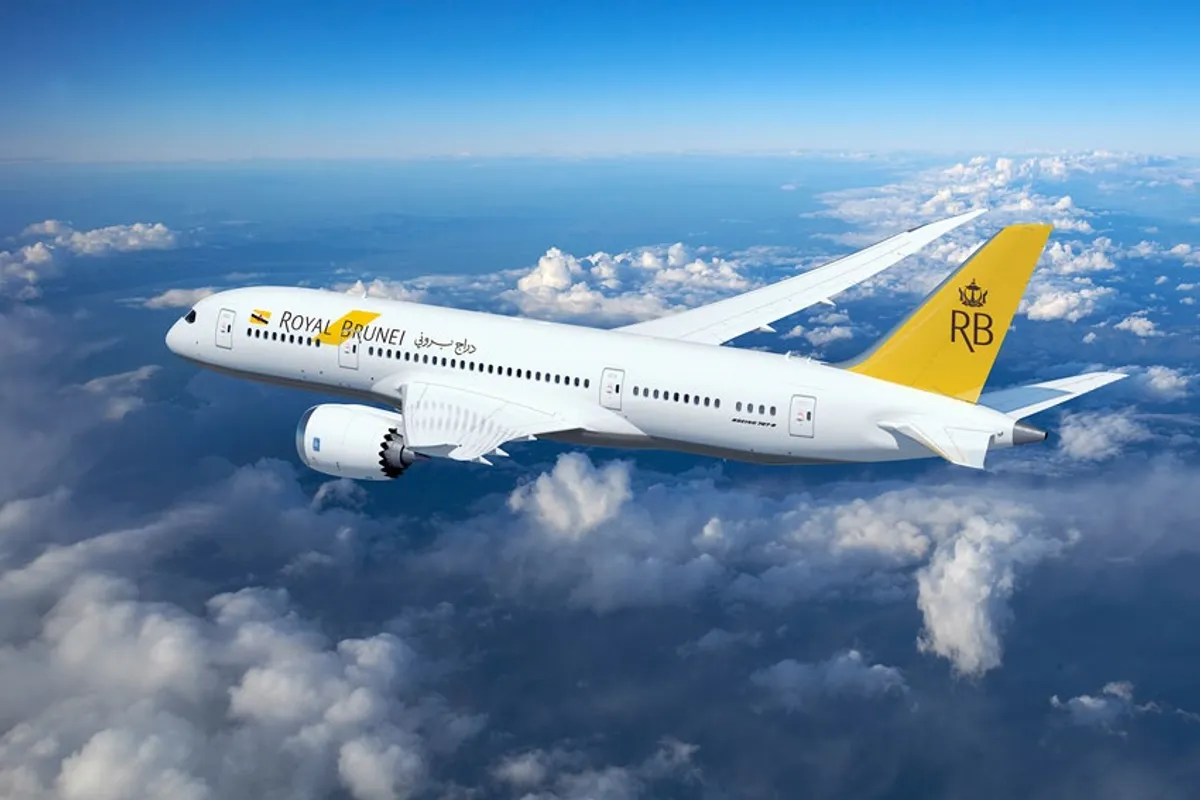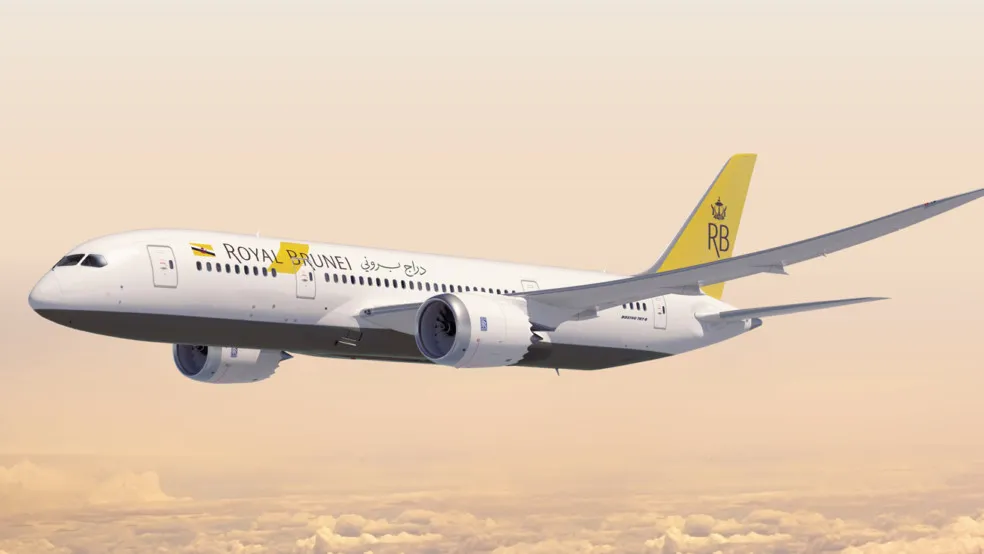
Royal Brunei Airlines to Offer Intelsat Inflight Connectivity
Royal Brunei Airlines Selects Intelsat to Deliver Multi-Orbit Inflight Connectivity on Airbus A320neo Fleet In a significant step toward transforming the in-flight experience for passengers across the Asia-Pacific region, Royal Brunei Airlines (RB) has announced its partnership with Intelsat, the operator of the world’s largest integrated satellite and terrestrial network. This collaboration will bring next-generation, multi-orbit inflight connectivity to RB’s Airbus A320neo aircraft, delivering high-speed internet access throughout the carrier’s route network.
With this agreement, Intelsat strengthens its presence as a leading inflight connectivity provider in the Asia-Pacific aviation market, a region that has seen increasing demand for onboard broadband services. As air travel rebounds globally, airlines are under growing pressure to enhance passenger experiences through digital transformation—and inflight connectivity (IFC) has become a core component of that strategy.
A New Era of Passenger Experience
Passengers flying with Royal Brunei Airlines will soon enjoy a level of internet connectivity that mirrors the reliability and speed of terrestrial broadband. This is made possible through Intelsat’s multi-orbit satellite architecture, which leverages the strengths of both geostationary (GEO) and low-Earth orbit (LEO) satellite constellations. The integration of both orbits ensures that passengers experience seamless coverage regardless of geography or altitude, including on challenging routes over oceans or remote regions.
“Royal Brunei’s passengers will soon benefit from reliable, multi-orbit connectivity that will provide the same fast and dependable internet access they enjoy at home no matter where or when they fly,” said Mike DeMarco, Chief Commercial Officer at Intelsat. “The Intelsat team is proud to have been selected by RB to deliver a product that will keep the airline on the cutting edge.”
This connectivity upgrade aligns with growing expectations among airline passengers, who now view inflight Wi-Fi not as a luxury but as a necessity—especially on long-haul or business-related travel. With rising digital engagement and an increase in work-from-anywhere lifestyles, more travelers are demanding uninterrupted connectivity throughout their journeys.
Technology Behind the Connectivity
At the heart of this rollout is a state-of-the-art electronically steered array (ESA) antenna, an advanced technology that offers a low-profile, lightweight, and highly reliable solution for consistent satellite connectivity. The ESA antenna—measuring less than seven centimeters in height—will be installed on RB’s A320neo aircraft starting in the fourth quarter of 2025.
Unlike traditional mechanically steered antennas, which involve moving parts to track satellites, ESA antennas are electronically controlled, which makes them more robust, energy-efficient, and faster at switching between satellites. This is particularly important when managing multi-orbit connections where switching between LEO and GEO satellites must be instantaneous and smooth.
The new antenna will connect RB’s aircraft to Intelsat’s global GEO satellite fleet and to partnered LEO satellite constellations, enabling high-throughput broadband regardless of flight path. Whether cruising over dense urban airspace or remote oceanic corridors, passengers can expect high-quality video streaming, real-time messaging, email access, and web browsing—all with minimal latency.
Royal Brunei Airlines’ Vision for Innovation
The decision to equip its A320neo fleet with multi-orbit connectivity is part of Royal Brunei Airlines’ broader vision to position itself as a forward-thinking airline in Southeast Asia and beyond. Known for its high standards of service and safety, the carrier operates an expanding network that includes destinations across Asia, the Middle East, Australia, and the United Kingdom.

“We’re excited to bring this next generation of connectivity to our Airbus A320neo fleet, ensuring our guests stay seamlessly connected wherever their journeys take them,” said Captain Sabirin Haji Abdul Hamid, Chief Executive Officer of Royal Brunei Airlines.
He continued, “This technology not only sets a new standard for in-flight internet, but also reflects our commitment to innovation and delivering an exceptional experience for travelers across the region. We believe that staying connected in the air is a necessity, and we’re proud to partner with Intelsat in delivering this next-level experience to our travelers across the Asia-Pacific region.”
This upgrade is especially timely, as the aviation industry enters a new era of digital customer experience. From personalized inflight entertainment to real-time e-commerce and operational enhancements like predictive maintenance and real-time telemetry, high-speed connectivity serves as the digital backbone for modern airline operations.
Intelsat’s Growing Footprint in Asia-Pacific
Intelsat’s selection by Royal Brunei Airlines further reinforces the company’s growing influence in the Asia-Pacific region. Over the past several years, the satellite provider has successfully partnered with multiple airlines in the region to offer cutting-edge connectivity solutions, enabling carriers to meet rising passenger expectations while optimizing their operational capabilities.
By delivering multi-orbit connectivity, Intelsat has effectively addressed one of the primary challenges in satellite internet: maintaining consistent and high-bandwidth coverage across varied terrains and flight routes. Traditional GEO satellites, while excellent for wide coverage, can suffer from latency and limited throughput. On the other hand, LEO satellites provide low-latency, high-speed connectivity but require dense satellite constellations and handoffs. Intelsat’s hybrid approach blends the strengths of both orbits, creating a resilient and scalable IFC platform.
This model is particularly well-suited for airlines with a diverse route network like RB, whose flights span over both densely populated areas and isolated airspaces.
A Competitive Edge in Passenger Experience
As the competitive landscape in commercial aviation continues to evolve, differentiation through passenger experience is becoming a defining factor in airline success. Airlines that invest in future-ready infrastructure like multi-orbit connectivity are more likely to win loyalty from tech-savvy travelers and business-class clientele who consider constant internet access a non-negotiable requirement.
For Royal Brunei Airlines, this inflight connectivity initiative is not only about enhancing passenger experience—it also positions the airline as a digital leader among regional carriers. It signals a commitment to long-term innovation and a clear understanding of shifting consumer behavior in the digital age.
Similarly, for Intelsat, this agreement with RB validates the scalability and competitiveness of its hybrid satellite model. As more airlines move toward next-generation connectivity solutions, Intelsat stands poised to play a central role in enabling the digital transformation of global aviation.
The partnership between Royal Brunei Airlines and Intelsat represents a significant milestone in the advancement of inflight connectivity across Southeast Asia and the broader Asia-Pacific region. With the introduction of multi-orbit broadband on its A320neo fleet, RB is setting a new benchmark for seamless, reliable, and high-speed internet in the skies.
As installation begins in late 2025, passengers can look forward to a truly connected inflight experience that supports everything from business productivity to entertainment and social engagement. Through this forward-thinking initiative, Royal Brunei Airlines not only enhances its competitive edge but also affirms its commitment to delivering world-class service—both on the ground and at 35,000 feet.

